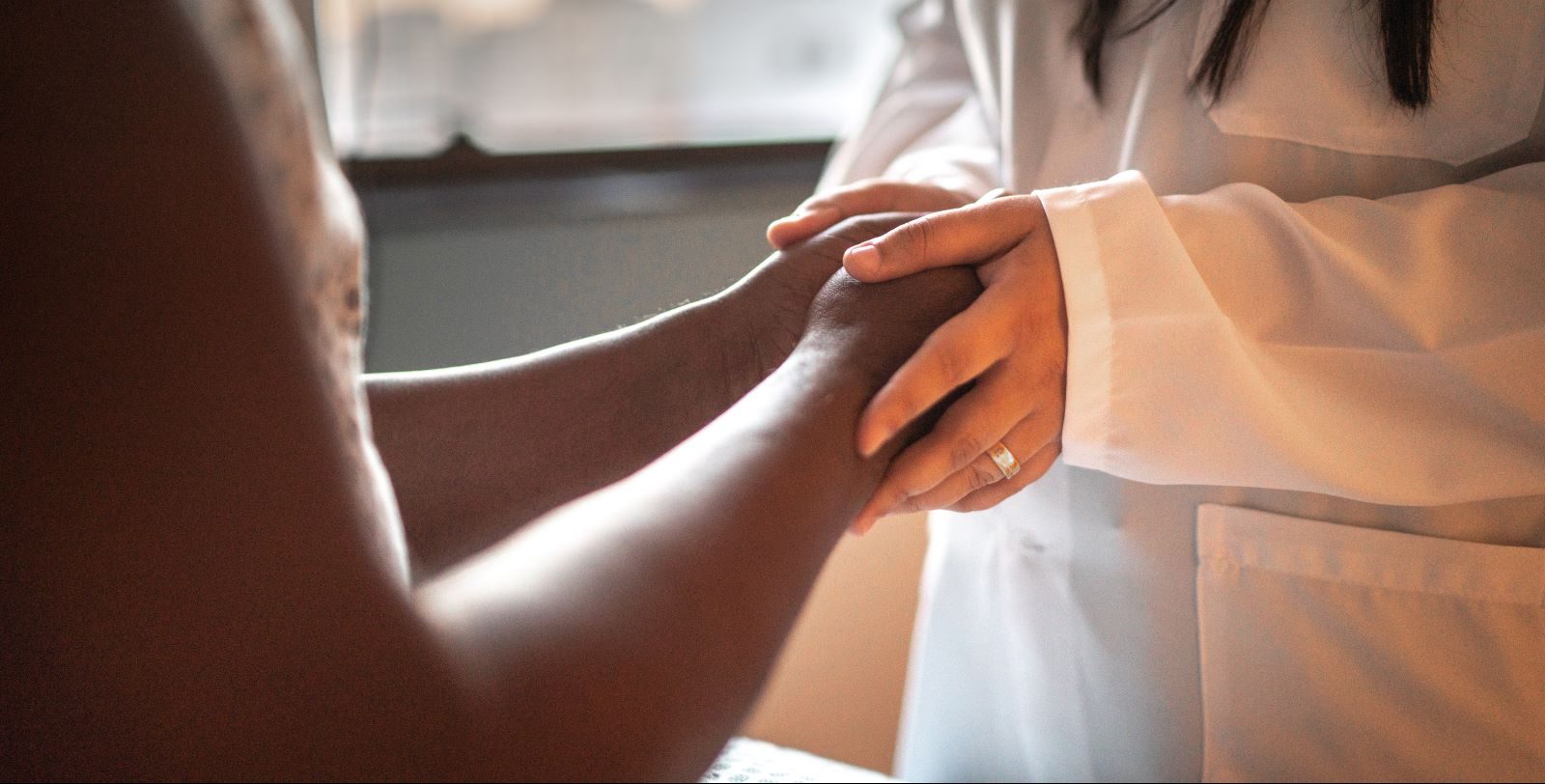Cancer is a scary word. And whether you’re waiting for test results or just received a cancer diagnosis, that time can be upsetting for both you and your loved ones.
“A cancer diagnosis is a trauma,” says licensed professional counselor Caitlin McPhelimy, cancer support services program manager for Hartford HealthCare’s Cancer Institute. “Hearing the “C” word will make you question, am I going to die?”
We asked McPhelimy for some advice to help patients manage this part of their journey.
As I head into the meeting with my provider to hear my diagnosis, what should I do to prepare?
“The wait for information is rough. It’s like an emotional torture chamber,” McPhelimy says. If you’re preparing for an appointment, McPhelimy recommends:
- Utilizing your social support system, where it be family or friends.
- Adopting emotional survival mode, which means doing whatever helps you, whether it be taking it easy or keeping busy.
- Preparing for your appointment by writing down questions. Have a friend or family member review your questions with you. They might think of something you haven’t.
Should I bring someone with me to the appointment?
The short answer is yes, says McPhelimy.
“Best case scenario is you have someone with you. They can be an extra set of ears, they can take notes for you. You will be getting a lot of information, and having someone there can help. Afterwards, debrief and ask them what they heard, in case you missed anything.”
At the diagnosis appointment, what are some immediate coping strategies I can use?
Most importantly, McPhelimy says, if the provider is speaking too quickly or using terms you don’t understand, speak up.
“Don’t be afraid to be vocal. Ask them to slow down. Ask them for clarification. You should absolutely use this time to have your needs met within the appointment, and the provider should be happy to accommodate you.”
Getting a diagnosis of cancer is shocking, McPhelimy says, even if you suspected it. “Take a breath. In the moment, let yourself feel whatever you are feeling. There’s no right way or wrong way to handle the news.”
In the immediate aftermath of getting the diagnosis, what should I do?
“There’s no right answer to this question,” she says. “Some people want to share the news, and some want to share it widely.”
Others want to keep it private within their core group. Listen to what feels right to you. And know there is flexibility, that you can change your mind. Follow your intuition.
> Want more health news? Text StartHere to 85209 to sign up for text alerts
What about support groups? How do I know if one is right for me?
McPhelimy organizes the Cancer Institute’s myriad support groups, so she admits up front that she’s biased.
“I know they can be extraordinarily helpful in normalizing what is a very abnormal situation,” she says. “You are now part of a club that no one wants to be in. And these people understand the same language and can give you tips and tricks and support.”
She always encourages patients to “at least try it. Your friends and family can provide a certain level of support, but being with people who are also in it like you can provide a deeper connection and can help with the feelings of isolation you might have. Everybody is different, and you might decide it’s not for you, but at least try.”
Can my attitude toward my cancer diagnosis affect my response to treatment or even my outcome?
There’s been a lot of research that says there’s a definite benefit to having a positive or optimistic mindset, says McPhelimy. But that doesn’t mean you’re limited to positive feelings only.
“There are two truths. You can be scared, mad, frustrated, sad. And those should be validated. You can have those feelings and also be positive and hopeful.”
When should I seek professional help?
If those feelings of hopelessness or anger or sadness become all-consuming, however, “then you’ve crossed a line and it’s time to ask for additional help.” The Cancer Institute offers social workers and counseling services to all patients.
“Our oncologists are so mindful about checking in on the emotional ‘side effects’, but I encourage patients to be active in voicing any concerns. Talk to your oncology team, they collaborate with an interdisciplinary team including our support services and we reach out directly to chat about resources and recommendations.
“It’s important to have an ongoing conversation because your emotional needs might not surface at diagnosis. They might come even after treatment is over and we are here and happy to help at any point in the journey.”


